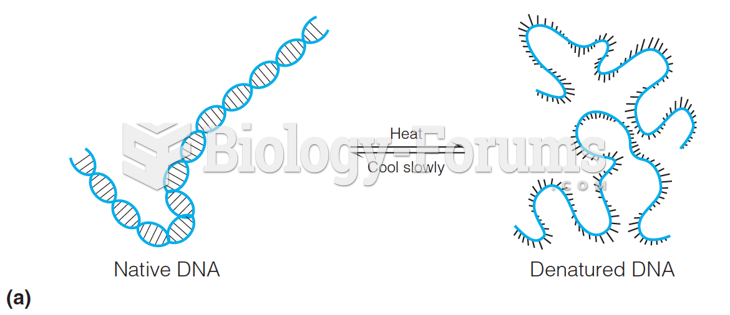|
|
|
Blastomycosis is often misdiagnosed, resulting in tragic outcomes. It is caused by a fungus living in moist soil, in wooded areas of the United States and Canada. If inhaled, the fungus can cause mild breathing problems that may worsen and cause serious illness and even death.
Pregnant women usually experience a heightened sense of smell beginning late in the first trimester. Some experts call this the body's way of protecting a pregnant woman from foods that are unsafe for the fetus.
Complications of influenza include: bacterial pneumonia, ear and sinus infections, dehydration, and worsening of chronic conditions such as asthma, congestive heart failure, or diabetes.
In 1864, the first barbiturate (barbituric acid) was synthesized.
Cancer has been around as long as humankind, but only in the second half of the twentieth century did the number of cancer cases explode.
 Relationship between fruit radius and beak length in populations of native and introduced species of
Relationship between fruit radius and beak length in populations of native and introduced species of
 Apply lubricant to the entire right limb using basic sliding effleurage. Apply moderate pressure ...
Apply lubricant to the entire right limb using basic sliding effleurage. Apply moderate pressure ...
 Finish with bilateral stroking to the entire back. Stand at head of the table with fingers pointing ...
Finish with bilateral stroking to the entire back. Stand at head of the table with fingers pointing ...




